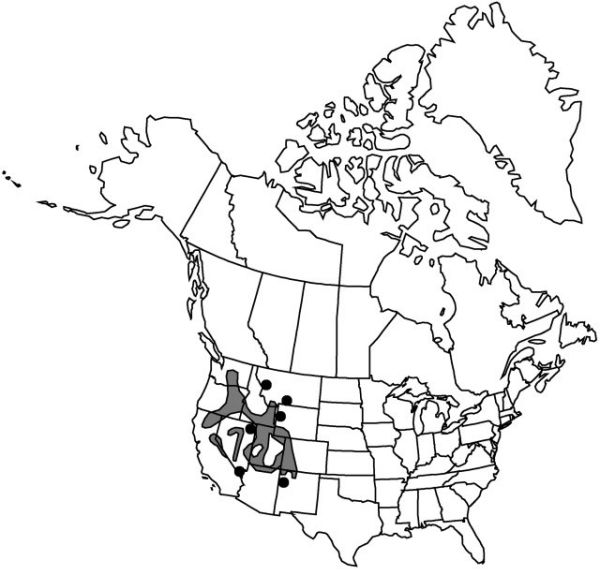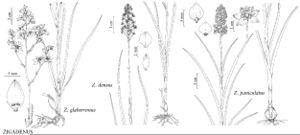Zigadenus paniculatus
Botany (Fortieth Parallel), 343. 1871.
Plants 2–7 dm, from bulbs; bulbs not clumped, tunicate, ovoid, 18–40 × 12–35 mm. Leaves: proximal blades 15–35 cm × 3–15 mm. Inflorescences paniculate, 10–80-flowered, narrow, terminal raceme pyramidal in anthesis, 2–30 × 2–4 cm, proximal branches usually less than 6 cm, 1/10–1/2 length of entire inflorescence, diverging from main axis at 10°–60° when in fruit. Flowers: perianth hypogynous, campanulate, 5–10 mm diam.; tepals persistent in fruit, cream colored, ovate, 2–5 × 1–4 mm, outer usually not clawed, apex usually acute; gland 1, obovate, distal margins evident to obscure, irregular; filaments straight, usually equaling tepals, occasionally longer, thickened proximally; pedicel ascending to perpendicular to stem in fruit, 3–25 mm, bracts green, lanceolate, 5–15 mm. Capsules 5–20 × 3–8 mm. 2n = 22.
Phenology: Flowering Apr–Jun.
Habitat: Sagebrush desert, dry open inland grasslands
Elevation: 1300–2600 m
Distribution

Ariz., Calif., Colo., Idaho, Mont., Nev., N.Mex., Oreg., Utah, Wash., Wyo.
Discussion
Selected References
None.
Lower Taxa
"broad" is not a number."thicker" is not a number.
